Part of the reason German engineers and scientists are renowned around the world is due to the nation’s mindset. Honest, hardworking and diligent come to mind, and though there are other countries whose products a venerated globally (Italy’s come to mind), those places — and the people — lack the industriousness of the Germans.
Some would argue that is true but they lack the innovation of, say, the Americans or the French. All in all, though, it doesn’t really matter as the proof is in the pudding. When you have legacy companies within your borders with the prestige and reputation of, say, BMW, SAP, Volkswagen, Audi, Siemens, Adidas, Porsche, and Bosch, you can brag a little. Couple them with the world-class research institutes with names like the Fraunhofer-Gesellschaft and the Max-Planck-Gesellschaft and you have a winning formula.
Germany and Quantum Computing – Timeline
As the birthplace of such quantum luminaries as Max Born, Werner Heisenberg, Albert Einstein, and Arnold Sommerfeld, it would be a surprise today if the country wasn’t at the cusp of innovative research within quantum computing (QC) and quantum information science (QIS), too.
And it is, for groundbreaking research in the space is nothing new for educational establishments like the Freie Universität Berlin, the Quantum Applications and Research Laboratory (QAR-Lab) at LMU Munich, the Institute for Quantum Information at RWTH Aachen University, the Institute for Photonic Quantum Systems (PhoQS) at Paderborn University, the Quantum and Solid State Theory Group at Saarland University, the Burkard Group of Condensed matter theory and quantum information at the University of Konstanz, and finally, the University of Stuttgart’s Institute for Functional Matter and Quantum Technologies.

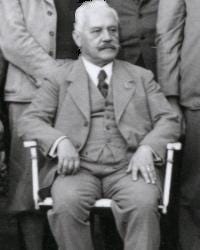
These are the factories manufacturing tomorrow’s quantum physicists — some of which will stay in Germany while others will spread their wings.
In the commercial world as well, we have seen several German quantum computing startups come into being. To underscore this, TQD has come up with a list of seven companies with some great ideas on how to utilize quantum mechanics to solve real-world problems — they range from optimization solutions to how best post-quantum cryptography can keep us safe. What they all have in common, however, is the innovation at their heart, an innovation that will move Germany forward in the era of Quantum 2.0.
As usual, the list is not exhaustive — seeing at the rate at which startups are being established around the world, it wouldn’t surprise us if by the time this goes out another German Quantum Computing startup has seen the light of day.
7 German Quantum Computing Companies
1.Avanetix
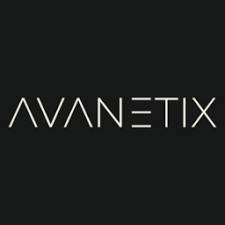
Featured in a TQD story early last year, Avanetix was founded in 2019. A Berlin-based quantum computing startup, the company’s innovative application software solves supply chain headaches utilizing a hybrid approach of classical optimization methods, ML and QC.
The founding team consists of Naimah Schütter and Christian Nietner.
Visit company’s profile page.
2.HQS Quantum Simulations

HQS Quantum Simulations was founded in Karlsruhe, Germany, in 2018 by Michael Marthaler, Sebastian Zanker, Iris Schwenk, and Jan Reiner.
HQS’s key focus is to develop quantum algorithms that are able to predict molecular properties for materials, chemicals and the pharmaceutical industry. The startup’s bespoke simulation software for material modelling brings about better R&D results, is time-saving while also being cost-effective.
Visit company’s profile page.
3.KEEquant

KEEQuant was founded in 2020 with the aim to secure today’s communication and network infrastructure.
With a deep background in quantum technologies and entrepreneurship, this German quantum computing company devises quantum key distribution technology which is provably secure even against the most sophisticated attacks.
Being based and funded in EU27 allows KEEQuant to provide trustworthy quantum computing solutions even for the most critical customer applications.
Visit company’s profile page.
4.JoS Quantum
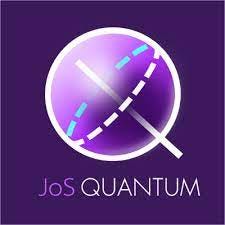
Founded in 2018 in Frankfurt, Germany, am Main by Markus C. Braun, JoS Quantum is currently developing software algorithms for quantum computers. The ultimate goal of this German startup is to improve speed-up times and refine decision making in the financial industry by way of solving optimization problems in risk management and trading scenarios, for example, while also offering ancillary services in research-as-a-service (RaaS).
Visit company’s profile page.
5.kiutra

kiutra is a spinoff of the Technical University of Munich (TUM). Founded in 2018, this quantum computing startup is developing compact and cryogen-free cryostats designed around closed-cycle cryocoolers that employ Adiabatic Demagnetization Refrigeration (ADR) and continuous Adiabatic Demagnetization Refrigeration (cADR) to make use of the full temperature range from room temperature to the sub-Kelvin regime.
Kiutra’s founders are Alexander Regnat, Tomek Schulz, Christian Pfleiderer, and Jan Spallek.
Visit company’s profile page.
6.QuantiCor Security
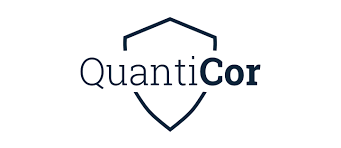
Founded in 2017 by Rachid El Bansarkhani, QuantiCor Security is a Darmstadt-based quantum computing startup providing novel solutions in post-quantum cryptography for Internet-of-Things (IoT) and blockchain applications.
With a scientific committee headed by renowned cryptography expert Professor Johannes Buchmann, it’s no wonder QuantiCor has won several awards in the space for its quantum-resistant security solutions.
Visit company’s profile page.
7.Quantum Factory
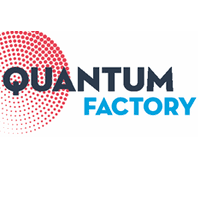
Quantum Factory is a German quantum computing startup founded in 2018 in Munich, after Berlin and Hamburg, the country’s third most important city. Its focus is to design, then build, an ion-trap-based quantum computer scaling the number of physical qubits while sustaining the level of high quantum gate fidelity.
Quantum Factory’s founders are Alexander Hüsers and Björn Stein.
Visit company’s profile page.
Have we missed any out or got something wrong? If so, don’t hesitate to contact us at hello@thequantuminsider.com.
The Quantum Insider (TQI)

If you want to find out what’s new in the Industry, check out our latest quantum news.
















